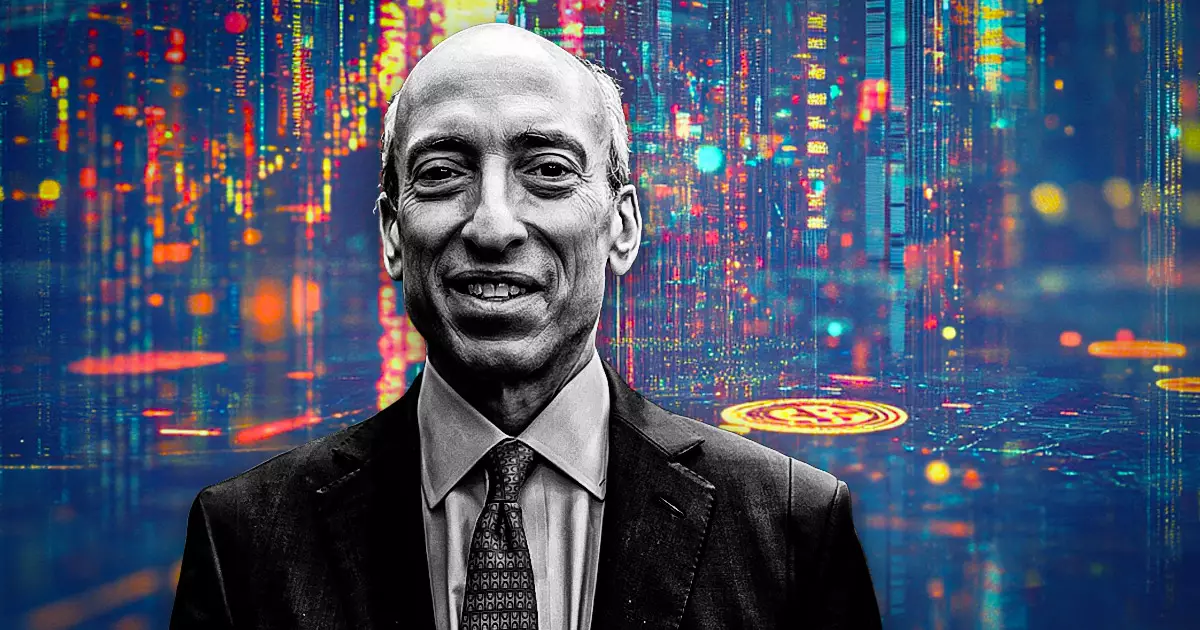As Gary Gensler steps down from his role as Chair of the Securities and Exchange Commission (SEC), his tenure is marked by contention and criticism, particularly from cryptocurrency advocates. Gensler’s governing philosophy appeared rooted in caution, particularly in his assertion that the crypto landscape was “rife” with bad actors. His insistence on rigorous regulatory oversight has incited backlash from key industry players, who argue that such a hostile stance stifles innovation and fails to consider the transformative potential of blockchain and cryptocurrencies.
The statistics discussed during Gensler’s recent interview reflect an aggressive regulatory approach, with nearly 100 enforcement actions initiated under his leadership. This figure builds upon the groundwork established by his predecessor, Jay Clayton, highlighting a continuation of the SEC’s increasingly assertive posture toward the cryptocurrency sector. High-profile cases, such as those involving figures like Sam Bankman-Fried, are frequently cited as evidence of the agency’s commitment to investor protection. However, the overwhelmingly punitive nature of these actions has led many in the crypto community to question whether the SEC is serving its stated mission or merely reinforcing a narrative of skepticism and suspicion toward innovative financial technologies.
One of Gensler’s defining critiques of the crypto industry is its perceived speculative nature, which he contends lacks the strong fundamentals typical of traditional financial markets. In his comparison of cryptocurrencies to high-risk venture capital investments, he paints a picture of a sector driven predominantly by fleeting market sentiments rather than solid economic indicators. While it is undeniable that many cryptos operate in speculative arenas, this viewpoint neglects to acknowledge the various projects aimed at underlying technological advancements, making simplistic comparisons to traditional finance reductive and misleading.
The crypto industry’s responses to Gensler’s statements have been sharp and unyielding. Key figures, such as Coinbase’s Chief Legal Officer, have accused him of alienating constituents and fostering an environment of resentfulness among voters. This resentment culminated in calls for a more balanced approach to regulation, one that recognizes the unique characteristics of the crypto landscape while still implementing necessary safeguards for investors. Moreover, sentiments expressed by pro-crypto professionals, who label the SEC itself as “rife with bad actors,” illustrate the profound distrust that has developed under Gensler’s leadership.
As Gensler prepares to depart on January 20, 2024, the path forward for crypto regulation remains uncertain. The contentious nature of his tenure has not only drawn attention to the regulatory frameworks governing cryptocurrencies but has also illuminated the broader debates about innovation, consumer protection, and the future of financial technologies. With hefty legal defense costs allegedly exceeding $400 million for the industry, the implications of Gensler’s tenure will likely resonate for years. As the SEC looks to its next leader, the hope is that the approach will pivot toward fostering innovation while ensuring investor security, striking a balance that has proven elusive during Gensler’s time in office.

